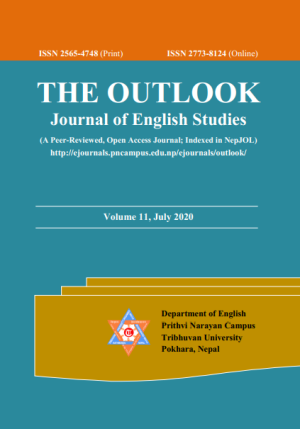Translation Theories and the Third World Literature: A Conceptual Review
DOI:
https://doi.org/10.3126/ojes.v11i0.36362Keywords:
Colonization, first world, third world, manipulation, translationAbstract
This article examines translation theories which explore the practices of reinforcing the colonial stereotypical images of the Third world people and culture while translating the Third World literature into English. The unequal power relations between the First World and the Third World, and the historical colonization have influenced both the product and process of translation. Moreover, the translator, a politically and culturally constructed subject, is caught up in the nexus of institutional demands and expectations of the readers. These factors also influence in the selection of the texts and writers of the translation. Consequently, the translation of the Third World literature into the language of the First World involves in manipulation due to unequal power relationship, subjective influence of the translator, and the cultural and linguistic untranslability. This article discusses these issues in references to the critical writings of Anuradha Dingwaney, Carol Maier, Mahasweta Sengupta and Mary Layoun.
Downloads
Downloads
Published
How to Cite
Issue
Section
License
This license enables reusers to distribute, remix, adapt, and build upon the material in any medium or format for noncommercial purposes only, and only so long as attribution is given to the creator.

